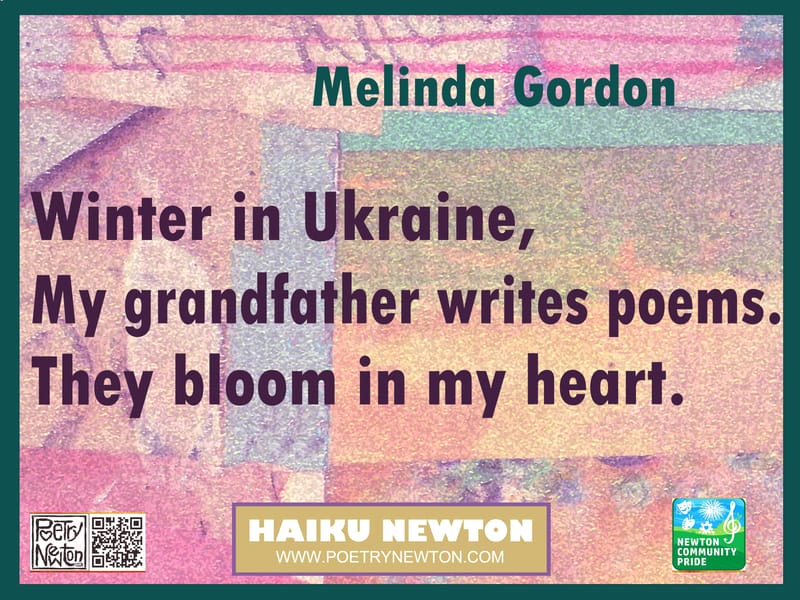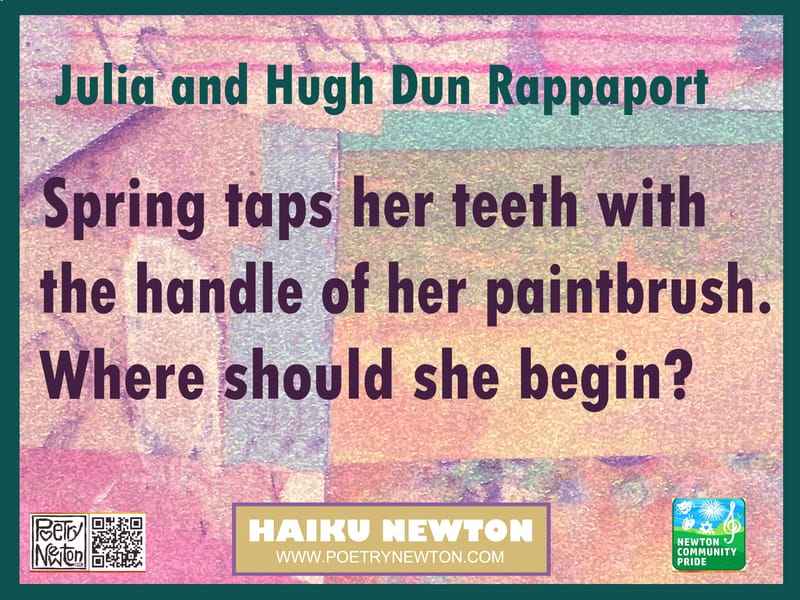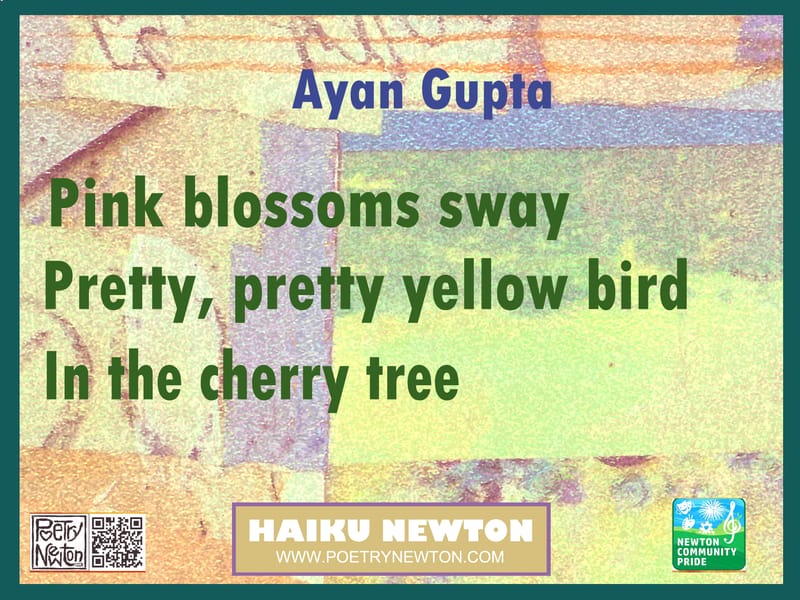2024 WINNING POEMS (BLOSSOMING) AND BIOS

BY MELINDA GORDON
Melinda Gordon loves learning about other cultures and has long been interested in Japanese haiku, tea ceremonies, Asian-inspired art and landscaping. “My grandfather was an immigrant from a shtetl near Kiev,” she says. “He avoided fighting for the Tzar and instead fought for the US in WWI, stationed in France. Returning home, he started a family and a business of a Five and Dime store. But he always wrote philosophical poetry.” Young Melinda would happily spend hours with him, correcting his spelling and copying his poems, which now reside in a small book and in her mind and heart. As an adult, she has taught art, photography, and video. “However, when a poem pops into my head, I feel like I am channeling my grandfather,” she says.

BY JULIA AND HUGH DUN RAPPAPORT
Julia Dun Rappaport began writing poems shortly after the pandemic hit. Since then, her poetry has appeared in numerous publications, including The Formula, The Weight, and The Telling Room. She won the Longfellow Prize, which honors the best poem by a high school student in Massachusetts. In addition, her visual art has won several local and national competitions. Hugh Dun Rappaport is Julia’s dad. Many years ago, he won a couple of small poetry contests, wrote a Shakespearian sonnet to propose to Julia's mom, published an op-ed in the Hartford Courant, and contributed an article about conjuring to an international trade magazine. Aside from the Haiku Newton contest, his recent writing has consisted of appellate briefs he has submitted to federal judges in his role as a Special Assistant U.S. Attorney.

BY AYAN GUPTA
Ayan Gupta is in first grade at Cabot Elementary in Newton. He likes to play tag and soccer. His favorite type of poem is haiku. “I thought of this poem because there is a cherry tree in our backyard and I like watching the birds fly in and out of view while I eat breakfast,” he said, via an email from his mom.